
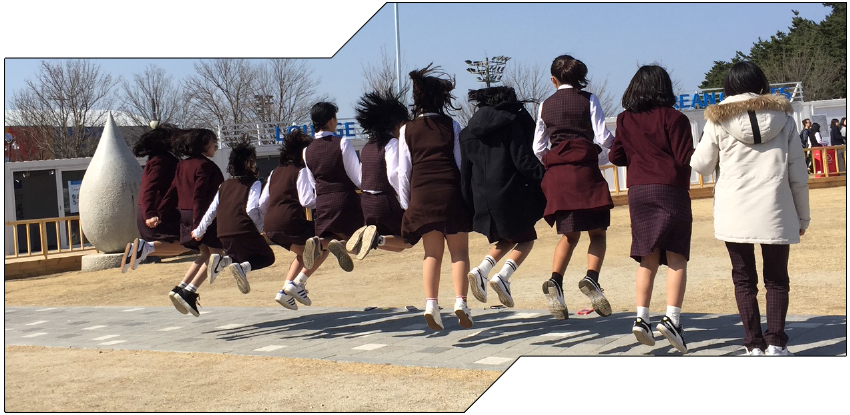
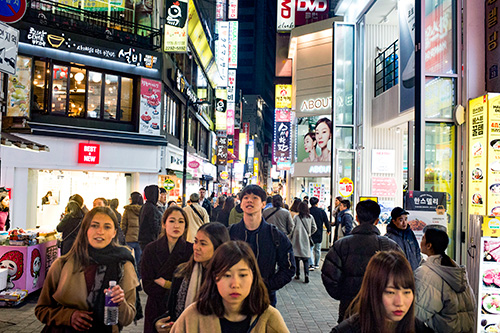 Planning for the Korea trip in Fall 2017 required a leap of faith. The 2018 Winter Olympics in PyeongChang, which would end right before our arrival, suggested that South Korea was a safe and stable destination. But a growing war of words between President Donald Trump and North Korean leader Kim Jong-un over Kim’s nuclear ambitions seemed as if it might erupt in actual fighting. Nevertheless, we bet that the crisis on the Korean Peninsula would defuse before our trip, and we were right. The North Koreans opted to participate in the Olympics, and a historic meeting between Kim and South Korean President Moon Jae-in was in the offing. Trump even had hinted that he might parley with the North Korean strongman.
Planning for the Korea trip in Fall 2017 required a leap of faith. The 2018 Winter Olympics in PyeongChang, which would end right before our arrival, suggested that South Korea was a safe and stable destination. But a growing war of words between President Donald Trump and North Korean leader Kim Jong-un over Kim’s nuclear ambitions seemed as if it might erupt in actual fighting. Nevertheless, we bet that the crisis on the Korean Peninsula would defuse before our trip, and we were right. The North Koreans opted to participate in the Olympics, and a historic meeting between Kim and South Korean President Moon Jae-in was in the offing. Trump even had hinted that he might parley with the North Korean strongman.
The ups and downs of Peninsula politics formed the background of our reporting trip to the South Korean capital. Many Koreans assured us that they never believed the North would attack, but neither did they think the two countries would have a true rapprochement. During our visit, we discovered that Koreans’ attitudes toward the Peninsula’s future—and toward religion—was often generationally-based. Older Koreans, who remember American aid during the Korean War and in subsequent rebuilding, remain staunch allies of the West. Many also are attached to American-style Protestant evangelicalism, which made significant headway between the 1960s and 1990s. A politically and religiously conservative cohort, many in this generation do not want anything to do with the North as long as the Kim family remains in power. They are, however, happy to support missionary efforts to convert their brothers and sisters on the other side of the border.
Young Koreans, especially millennials, have grown up in a thriving, technologically-advanced democracy. They are more liberal than their parents and grandparents: neither avid American supporters nor driven to saving North Korean souls. Many are secular, focused on work and success, and concerned that reconciliation with the North could have too high a price tag.
During our nine-day stay in Seoul, we reported on the religious attitudes about reunification; challenges to Korea’s once booming megachurches; a new politically active Buddhist sect; the #MeToo movement; Seoul halal; and the economics of shamanism among other stories. Some of us visited the Demilitarized Zone; others spent time in a Buddhist monastery, and still others went to the Paralympics in PyeongChang.
These are photos of students at work, some of the people we interviewed and sights we saw:
Scenes from Korea2018
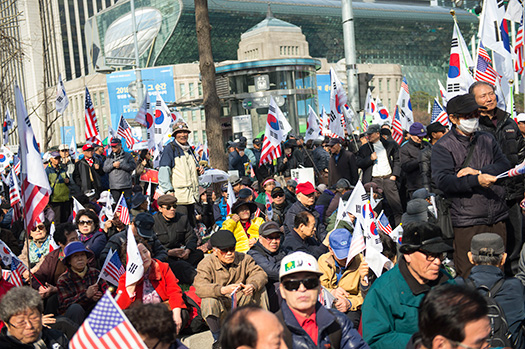 |
Protests for and against US involvement in the Korean peninsula were a common occurrence during our stay. |
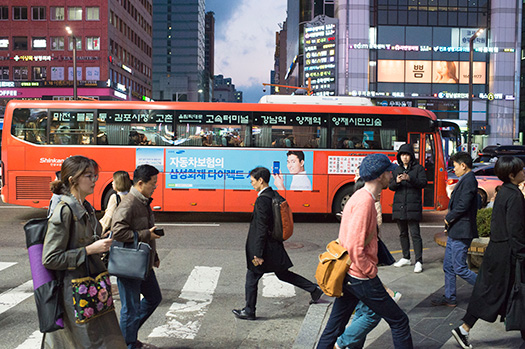 |
Everyone is on the go in Seoul and we enjoyed the bustle of a big city. |
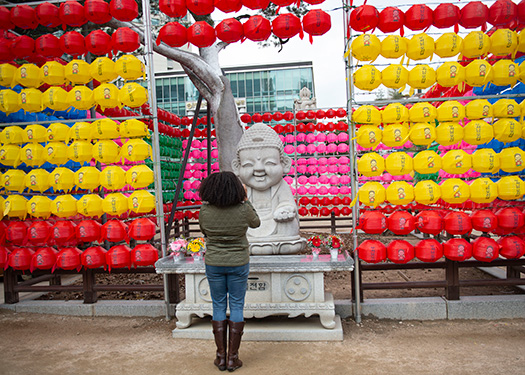 |
Sherry Simpson takes a photo of a laughing Buddha. |
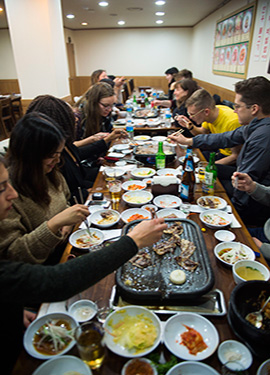 |
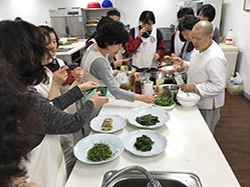
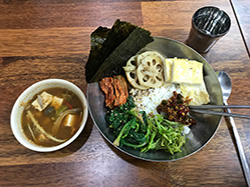 |
Food plays a large role in Korean culture. We tried many new dishes on our first night out, and several students attended a meal of specially prepared temple foods. |
|
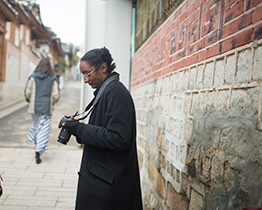 |
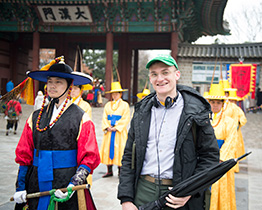 |
Razzan Nakhlawi gets ready to take a picture and Tom Carroll poses in front of a palace. |
|
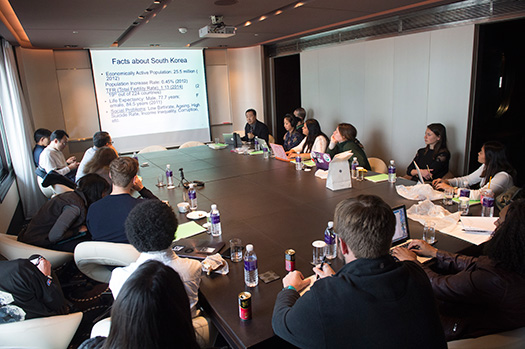 |
Early on in the trip, we spoke with scholars about religion and politics in South Korea. |
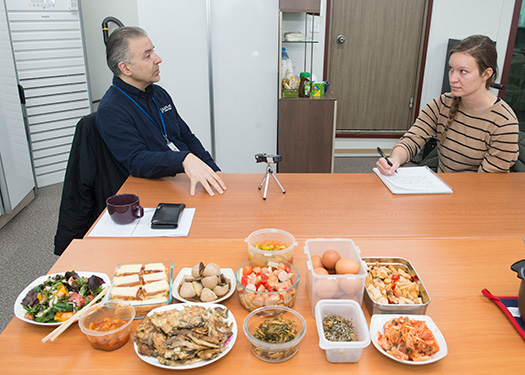 |
Rachel Cohrs interviewing the Rev. Eric Foley, head of Voice of the Martyrs. |
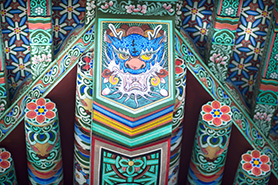 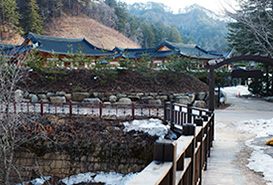 |
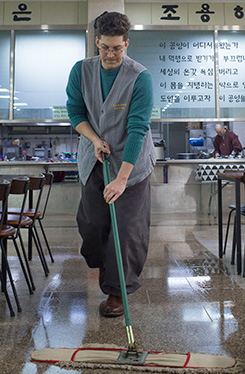 |
Several students stayed over at the Woljeongsa Temple in Odaesan National Park. Each was assigned to work duty and Chris Damian mopped the dining hall floor. |
|
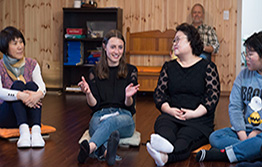 |
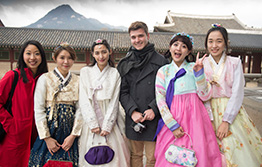 |
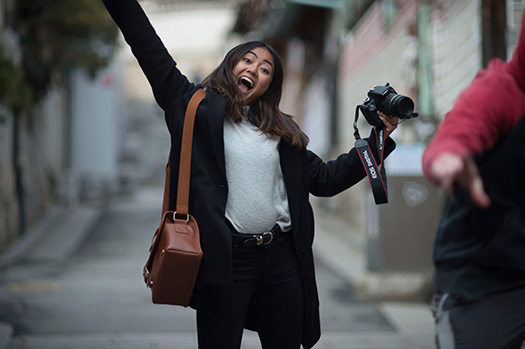 |
|
Aziza Kasumov, Ryan Thompson and Paulina Cacheco enjoying their work. |
|
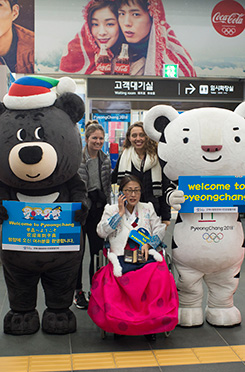 |
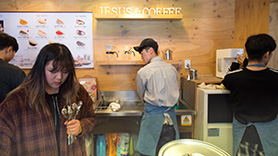 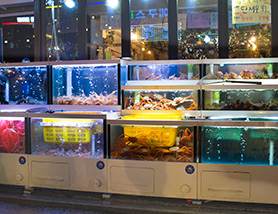 |
Erin Rode and Miranda Mazariegos at the Special Olympics. A look at a Christian coffee house and the wares at the central fish market. |
|
Published Work



